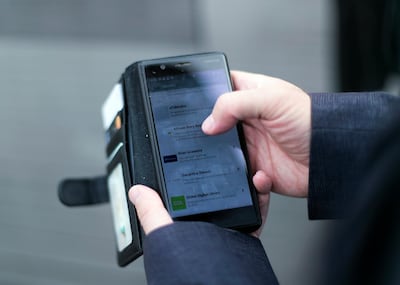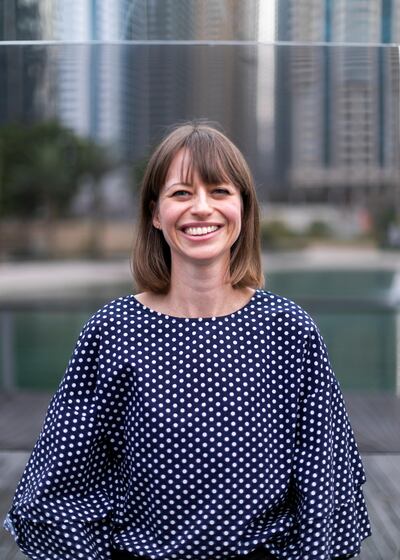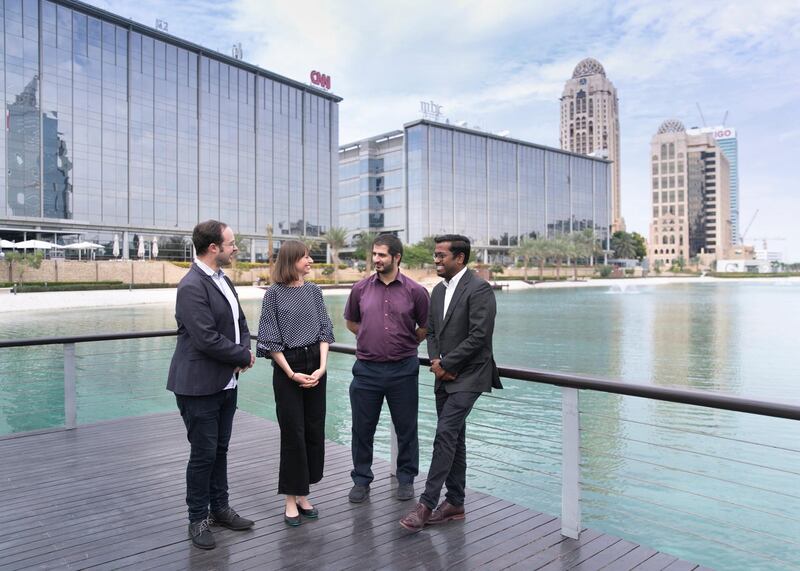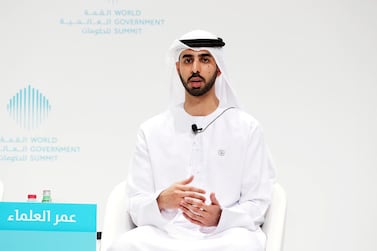Dubai-based Ustad Mobile helps people with poor internet connectivity access educational content in remote locations such as Afghanistan or refugee camps in Bangladesh and Jordan.
The company's app allows the disadvantaged, displaced and marginalised in society learn from educational content that can be shared offline through Bluetooth technology as well as a peer-to-peer sharing feature. Once the app is downloaded onto a phone, it can be distributed to other devices without requiring additional hardware or connectivity services.
A teacher, for example, could download a learning module and share it with 20 colleagues, instead of each staff member downloading it separately.
“We produce customised versions of the app for specific projects and organisations,” says Benita Rowe, co-founder of Ustad Mobile.
“This has included versions for teaching employability skills to university students in Afghanistan, a version to deliver teacher training to kindergarten teachers in Jordan and a version to enable educators and parents to access early childhood education materials in Rohingya refugee camps in Bangladesh.”
In Afghanistan, the Ustad app is used in all public universities with students and recent graduates able to access high-quality interactive video courses offline. Ustad also works with non-profit organisation, FHI 360, on a US Agency for International Aid Development project called Goldozi.
The Goldozi project will help women in and around Kabul increase the commercial potential of their traditional embroidered products.
“To achieve this, we're customising our open-source code to build an app that tracks sales for real-time project reporting, market trends and up-to-date market information," says Ms Rowe.
Founded in 2014 by Ms Rowe, Mike Dawson and Varuna Singh, the company received $100,000 (Dh367,250) from the Expo Live Innovation Grant programme, an Expo 2020 initiative, and a $30,000 pre-seed investment from the Dubai-based Turn8 Accelerator.
All three founders have spent several years working on increasing equitable access to education in places where connectivity was an issue. Mr Dawson and Mr Singh worked in Afghanistan on software development while Ms Rowe wrote proposals for the World Bank, from a programmatic and pedagogical perspective, to increase access to training materials for teachers across Afghanistan.
The three then decided to work together to develop a tool to increase access to digital learning content in areas with limited connectivity and help the disadvantaged, displaced and marginalised in their education.
“We believe the Ustad Mobile app has the potential to become the leading learning management system (LMS) for emerging markets. We’ll measure success in terms of the number of people in limited connectivity contexts who can access learning content via our app that they would otherwise not have had access to," says Ms Rowe.

The company is now planning to release a general purpose library that allows users to access over 100,000 of the world’s most popular online educational content free including Khan Academy, Edraak and Pratham Books offline. The project is supported by the Expo Live Innovation Grant, a Dubai Expo 2020 initiative.
“We're launching our general purpose library to reach as many users as possible in as many languages as possible," she says. "This will focus on countries where there are large numbers of users with limited connectivity.”
“We will also provide organisations — primarily NGOs (non-government organisations) and humanitarian sector actors — with an out-of-the-box system so that they can deliver and monitor their own digital learning content using our technology to overcome connectivity barriers.”
Dubai Future Accelerators in collaboration with Dubai Cares and Consult and Coach for a Cause (C3), along with the Expo Live Innovation Impact Grant Programme and start-up incubator In5 have been instrumental in providing the company with mentorship, funding sources and collaboration opportunities through public-private partnerships.
Ustad Mobile makes money by providing enterprise-level support, updates, and training for large-scale deployments and cloud hosting solutions, while leaving its software free and open source for anyone to use.
Q&A: Benita Rowe, chief operating officer at Ustad Mobile

What successful start-up do you wish you had started?
I am really excited about Desert Control, a Norwegian agro-technology company and fellow Expo Live Global Innovator. They're working on decreasing desertification in a cost-effective and environmentally friendly manner.
What new skills have you learnt from launching your venture?
Communicating how an offline-first approach and the sustainability of a programme are inextricably linked to decision makers. We often hear 'everyone will be online in two years' but the dynamics of this are far more complicated. Internet access as such is not a binary state and geography, class, region and gender intersect in a myriad of ways to impact an individual's access as well.
If you could do it all again, what would you do differently?
Pivot to offering a white-labelled version of the app to organisations interested in a subscription service a little sooner.
What is your next big dream?
For the coming months, I'm excited about expanding the reach and impact of the general purpose library created with support from the Expo Live Innovation Impact Grant Programme.
For the mid-term, I'm looking forward to utilising existing project revenue and grants to move towards a sustainable, open-source enterprise business model, similar to Canvas or Moodle where we provide organisations, primarily NGOs and humanitarian sector actors with an out-of-the-box system.
What does that involve?
This is to deliver and monitor their own digital learning content using our technology to overcome connectivity barriers while leaving the software itself, including the general purpose library, free and open source for anyone to use. We're on track to reach this goal which is really exciting.







